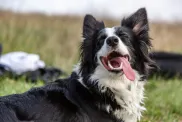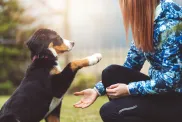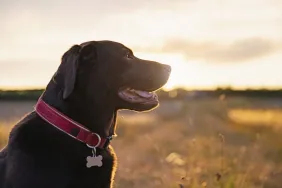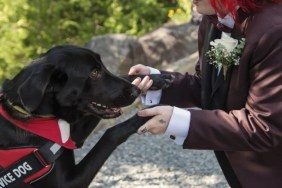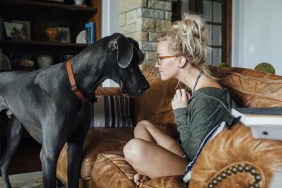Dear Labby,
I recently adopted a beautiful Chow Chow mix puppy from my local shelter and I couldn’t be happier with her. Bailey is everything I had been looking for and more, but because she’s part Chow, people tend to be hesitant to approach her when I take her to dog parks or pet stores.
I read up on the breed before making my decision to adopt her, and I understand that when not properly trained or socialized, Chows can be aggressive and protective of their owners. But Bailey’s just a puppy, and has always been a very sweet and polite young lady when out-and-about with me. I’m worried about how people will react when my teddy-bear pup becomes a large lioness. How I can convince them my dog would rather lick than bite?
Signed:
Bailey’s Always Delightful but Riles Apprehensive People
Dear Bailey’s Always Delightful but Riles Apprehensive People,
My friend with a Rottweiler handles such lack of knowledge this way: “Oh don’t worry–Killer only bites ignorant people.”
Seriously though, B.A.D.R.A.P., breedists are a tough group. And what makes re-educating them so tricky is that often their prejudice is based in a grain of truth: Different breeds were developed to manifest certain traits or perform certain jobs. Dobermans were bred to be guard dogs, Westies to hunt vermin, etc.
Unfortunately, some of the traits originally bred for have become distorted and misunderstood over the years. The fact is, today there is far more variation within breeds than among them. I’ve known crabby Cocker Spaniels, lazy Border Collies, and mellow Jack Russell Terriers.
The so-called “bully” breeds have, arguably, had it the roughest. A combination of astonishing strength and sadistic owners (who’ve abused them explicitly to foster aggression) has conspired to give them the most undeserved reputation around. Americans are surprised to learn that Pit Bulls were historically referred to as the “nanny dog,” so gentle are they with children.
So no matter how much you insist that cruel treatment is much more likely than genetics to result in an aggressive animal, repeated positive experience with Chows is likely the only way to change minds. My advice is to keep doing what you’re doing: Train and socialize Bailey to the best of your ability, expose her to all types of people, animals, and situations while she’s still in her impressionable puppyhood, and treat her with respect and kindness so that she grows up to be a comfortable, confident, well-adjusted dog.
And the next person who shoots you that “Eek! a Chow” look, calmly tell them: “Relax. We told her she’s a Puggle.”


